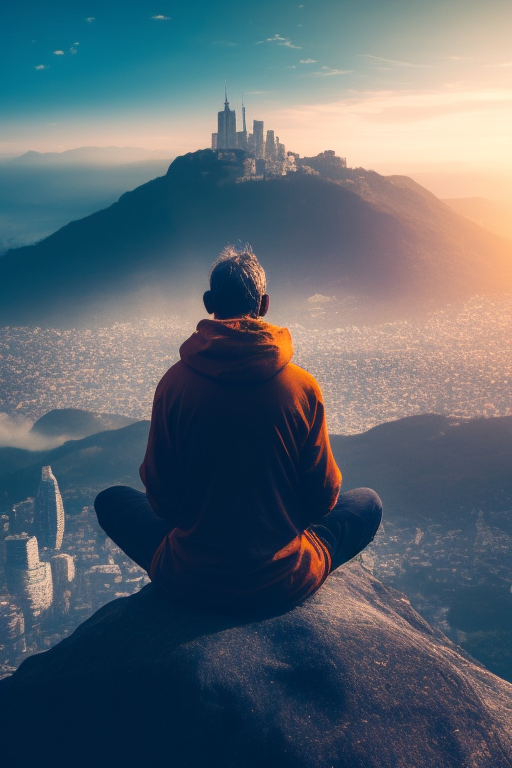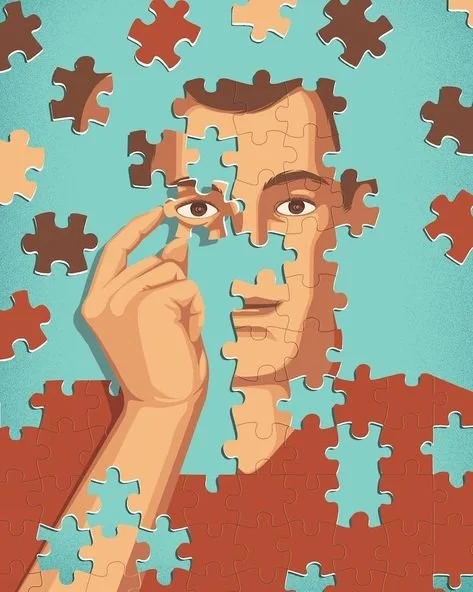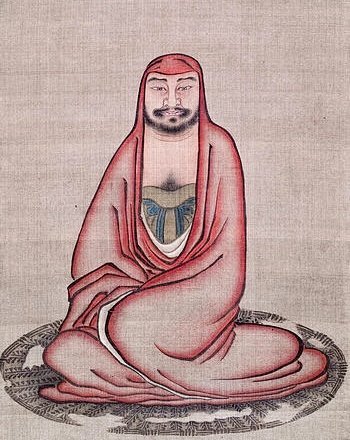Meditation For the Long Game: A Guide to Sustainable Practice
Whether you're just dipping your toes into the world of meditation or you've been at it for years, you're bound to face your own set of challenges. But here's the thing, embracing the idea of being in it for the long game, it's not just an attitude, it's an intention. An intention that can really shape your meditation journey in a positive way, making it more sustainable and meaningful.
Meditation and the Mind's Projection: How Thoughts Shape Our Reality
I'd like to share a few words on how our thoughts may shape our world. I say 'may' because I'd like to offer some reflections for you, the reader, on how this might be the case and how you might go about reflecting on that.
Cultivating Wisdom Is More Important Than Ever
With the proliferation of AI tools, our relationship to knowledge, information, and wisdom is going to start to change. There's this desert, this dry, arid place we take to be wisdom, but it's not wisdom, it's fake wisdom. Information, even including this writing, is not wisdom. It's just something we can take away, develop a connection to, and mine our own wisdom with.
We Are Not a Self-Improvement Project
When we try to improve ourselves, which self are we trying to improve? This is an interesting question because we often perceive ourselves as a singular, permanent entity. But when we look back at our lives, we see that our sense of self is made up of a series of different causes, conditions, moods, thoughts, and beliefs.
How and Why Do Buddhists Meditate?
In general, across various forms of Buddhism, the reasons why people meditate and why meditation is an integral part of the practice are rooted in the early or foundational teachings of the Buddha. These teachings describe two opposing ways to live or two opposing views.
The Thirty-Seven Practices Of A Bodhisattva: Verse One
In preparation for the upcoming Summer session (starts June 7th, 2023) of our Group Mentoring Membership program, I would like to share some thoughts on the seminal Tibetan Buddhist text, the Thirty-Seven practices of a Bodhisattva. This text, written by a 14th-century Tibetan monk and scholar named Tokme Zangpo, is a mind-training or Lojong text. It has been taught and commented on by Tibetan Buddhist Masters for centuries.
Living From a Sense of Call and Response
As we learn to let go of the judger or the commentator, we can listen to the raw sound of our experience, whether it is internal or external. We can be more attuned to people around us, the energy in the room, and the body language of people. This deep listening provides us with more agency and efficacy in how we respond to a particular situation, whether we are alone with ourselves and a thought or emotion or with others. Therefore, this practice is essential to finding more joy, connection, and harmonious relationships in our lives.
The Intersection Of Creativity and Dharma
Sometimes, people think that “being creative” means coming up with something completely new, but I believe that creativity actually comes from engaging with a structure or a path, transforming oneself, and then allowing that transformation to shine naturally. Initially this perspective was challenging for me because I didn't know how to adopt or work with the structures and ideas that are taught in Buddhism without either turning them into fixed beliefs on one side, or a self-affirming “It’s my truth, man,” kind of spirituality on the other.
Find Freedom Through Curiosity
I often refer to curiosity as bringing more fluidity into life. Here, fluidity is not just a feeling, but an experience of being more open to ourselves and the circumstances around us. It's about allowing life to happen, being present and responsive to it, and having an active relationship with it.
Meditation Techniques Are a Dead End…And What I Recommend Instead
I have seen both students I've worked with over the years and friends who meditate get a little bit obsessed over “mastering” a meditation technique and or finding the “best” one to practice. Because of this I’ve come to refer to meditation techniques (in and of themselves), as dead ends. I realize that this is a controversial statement, and so I ask for your generosity in hearing me out on my full perspective.
The Art of Surrender: A Buddhist Approach To Letting Go of Struggle
In traditional Buddhism, the word surrender isn't used much. However, it is embodied within a variety of practices and ways of relating to our emotions, thoughts, and lives through meditation. Surrender can mean a lot of different things depending on the context or how we take it personally. So, I want to share how I use the practice of surrender within my meditation and Dharma practice.
Navigating the Monastic Life: Challenges and Rewards in the Buddhist Tradition
Some of you who are newer to me or my work might not know that I was a Buddhist monk for a pretty sizable chunk of my life. Once people find out, I often get asked a lot of questions about what it was like, as it's something so foreign in our modern culture. So few of us outside of Asian Buddhist cultures get to experience monasticism. There's also a lot of “Hollywood” ideas of what a Buddhist monk is and I didn't find too many of those to be true.
Buddhist Wisdom For Nurturing Healthy Relationships
Relationships are everything, and we are always in relationship to something - whether it be our internal experiences of thoughts and emotions, our bodies, or those around us. In this post, I will share a few key ideas on nurturing healthy relationships that have been transformational for me.
We Are Not Fundamentally Screwed Up
When I first started studying Buddhism I came across the concept of Buddha nature, the idea that we are not fundamentally screwed up. Now, that's definitely not a traditional way to represent it or talk about it, but that's the way I like to introduce it in my Dharma talks.
When Everything Feels Like a Problem That Needs To Be Solved
In a recent mentoring session I was talking with a mentee about their struggles with overwhelm and anxiety. We were digging into some inquiry work around the role that their lifestyle choices, behaviors, and relationship to meditation may be playing.
“How Do I Get Rid of My Thoughts When I Meditate?”
When I was a Buddhist monk I would often get this question as I was passing through an airport, ordering a coffee (yes, monks like coffee too), or standing in line for something.
Should I Meditate With My Eyes Open or Closed?
Within the various kinds of Buddhism and methods of meditation throughout the world we're going to find a variety of recommendations for either closing or opening the eyes during meditation.
Meditation For Healing Anxiety
I've struggled with chronic anxiety as far as I can remember. Meditation has helped me immensely to work more skillfully with the anxiety I experience on a daily basis, and even to find some actual healing and transformation.
Finding Joy In the Process of Meditation
A more process-oriented approach to meditation can help us to deal more skillfully with resistance, stagnation, consistency, and can even bring more joy (yup!) in practice.
Developing a More Consistent Meditation Practice
The number one struggle I hear from both students I work with and one-to-one mentees is how to keep a consistent daily meditation practice. I hear this so much that I finally decided to devote some content to it.





















